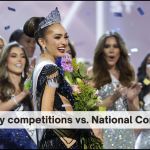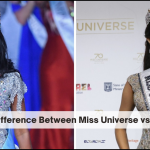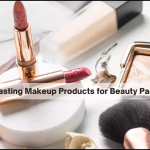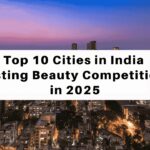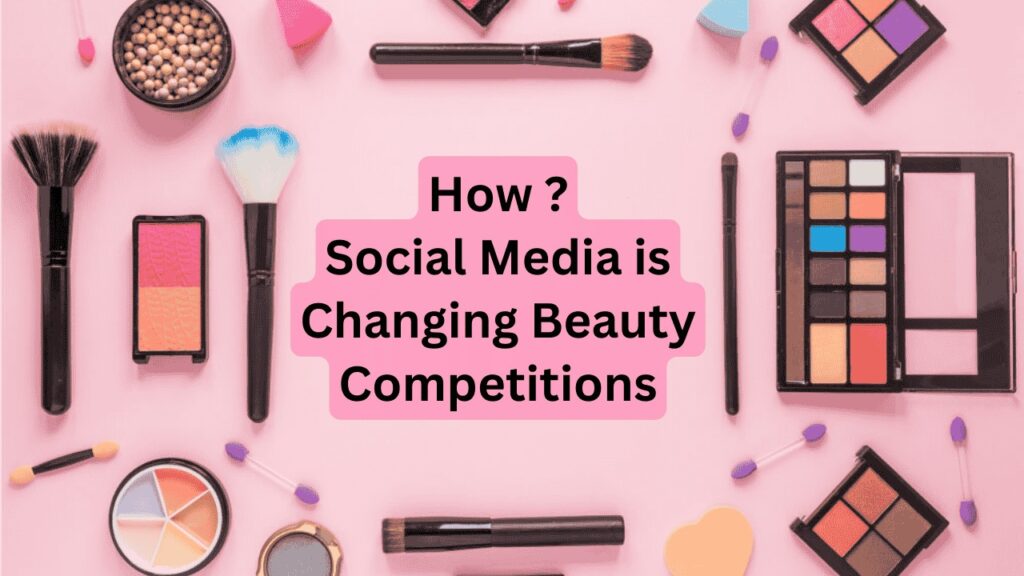
Beauty competitions have been around for decades, showcasing the talents, looks, and intelligence of contestants worldwide. However, the rise of social media has transformed these contests in many ways. Social platforms like Instagram, TikTok, and YouTube have changed how participants are judged, how audiences engage, and how organizers run these events. This article explores how social media is reshaping beauty pageants.
Table of Contents
The Role of Social Media in Beauty Competitions
1. Increased Accessibility and Participation
- Earlier, beauty competitions were limited to a small number of participants selected through offline auditions.
- Now, with online applications and virtual auditions, more people can take part from different locations.
- Social media allows contestants to showcase their talents, personalities, and beauty without geographic restrictions.
2. Influence of Public Opinion
- Earlier, judges had the final say in deciding winners.
- Now, audience votes and engagement on social media platforms play a major role in selection.
- Likes, shares, and comments influence the competition, making it more interactive.
3. Shift in Beauty Standards
- Traditional beauty contests focused on physical appearance and specific beauty norms.
- Social media promotes diversity, allowing people from different backgrounds, body types, and ethnicities to gain recognition.
- Natural beauty, confidence, and talent are now more important than just looks.
4. Direct Engagement with Fans
- Contestants can directly communicate with their fans through Instagram, TikTok, and Twitter.
- Live sessions, Q&A, and daily posts allow for real-time interaction.
- This engagement helps build personal brands and long-term careers beyond the competition.
5. Rise of Influencers in Beauty Pageants
- Many social media influencers have entered beauty contests, leveraging their existing fan base.
- Popular influencers often have an advantage due to their large online following.
- Beauty pageants now collaborate with influencers for promotions, increasing their reach.
6. Digital Marketing and Sponsorships
- Companies sponsor contestants with strong social media influence.
- Contestants use social media to promote beauty brands, fashion labels, and lifestyle products.
- Pageant organizers use digital ads, hashtags, and online campaigns to increase audience engagement.
7. Virtual Beauty Contests
- Some competitions are now held entirely online.
- Participants submit videos, photos, and live-streamed performances.
- Judges and audiences evaluate contestants through digital platforms.
8. Transparency and Accountability
- Social media brings transparency to competition.
- Any bias or unfair practices are quickly exposed through viral posts and online discussions.
- Contestants can raise their voices against discrimination, leading to fairer outcomes.
9. More Opportunities Beyond the Competition
- Even if participants do not win, they can still gain popularity and career opportunities.
- Many contestants become models, influencers, or brand ambassadors.
- Social media allows continuous career growth after the contest.
Traditional Beauty Pageants vs. Social Media-Driven Pageants
| Aspect | Traditional Beauty Pageants | Social Media-Driven Pageants |
|---|---|---|
| Selection Process | Offline auditions | Online applications & voting |
| Judges’ Role | Decisive | Shared with public votes |
| Beauty Standards | Fixed norms | More diverse & inclusive |
| Fan Engagement | Limited to events | Direct interaction online |
| Marketing Strategies | TV & print media | Digital ads & social media |
| Contestant Popularity | Based on judges’ choice | Influencers have an edge |
| Career Opportunities | Limited to winners | Open for all contestants |
Wrapping Up
Social media has revolutionized beauty competitions by making them more inclusive, interactive, and transparent. It has given contestants the power to shape their journeys, engage with audiences, and build long-term careers. As technology continues to evolve, beauty pageants will keep adapting, blending traditional values with modern digital trends.
Key Questions
1. How has social media influenced beauty competitions?
Social media has made beauty competitions more accessible, interactive, and diverse. It allows contestants to connect with fans, gain sponsorships, and build careers beyond the competition.
2. Do social media followers affect a contestant’s chances of winning?
Yes, having a strong social media presence can influence public voting and sponsorship deals. However, talent, confidence, and performance remain important factors in the final decision.
3. Can someone participate in a beauty competition without a large social media following?
Yes, while social media helps, many competitions still focus on overall performance, personality, and skills. Contestants can also grow their online presence over time.
4. Are online beauty pageants real?
Yes, many beauty contests are now conducted virtually. Contestants submit videos and participate in live-streaming rounds, making competitions more accessible worldwide.
5. How do social media beauty competitions help in career growth?
Even if a contestant doesn’t win, social media provides opportunities for brand endorsements, modeling, and influencer marketing. Many contestants find career success through online platforms.


